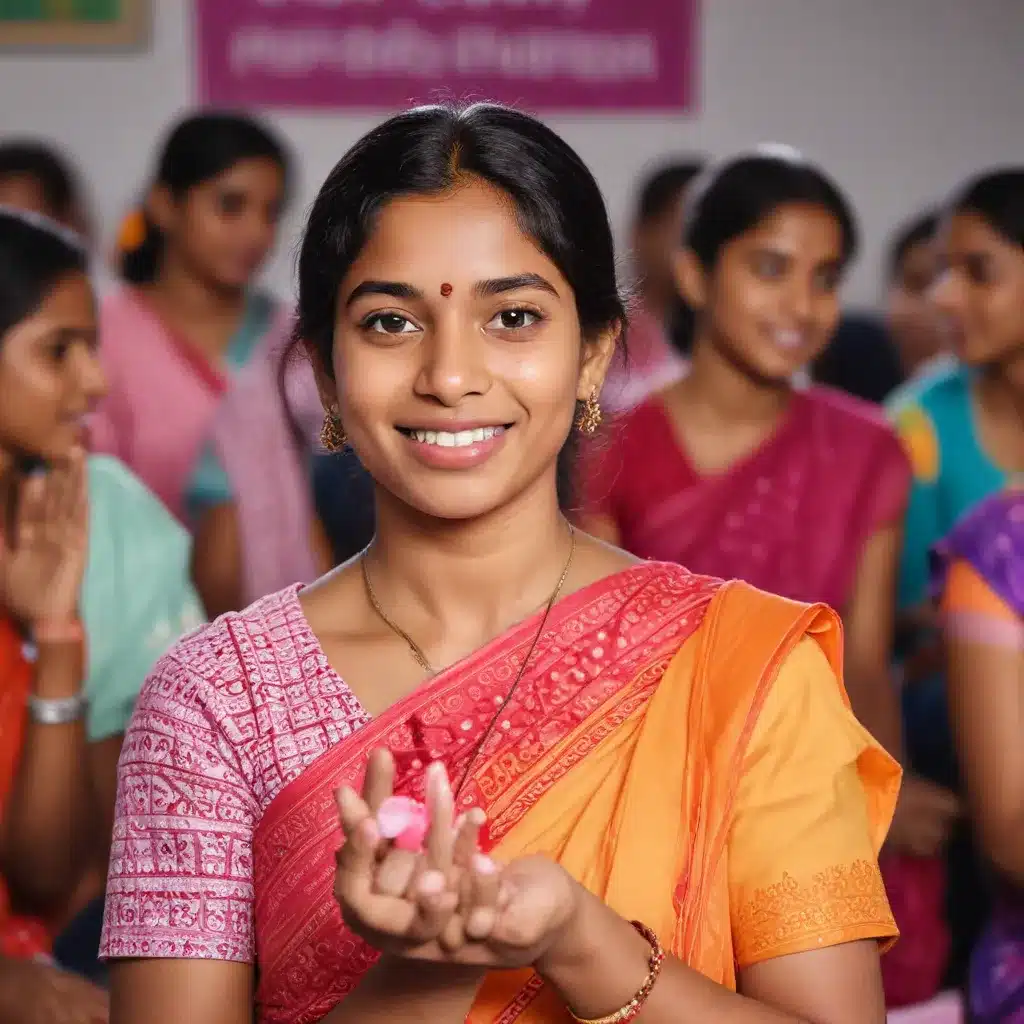
Menstruation and Sanitation: Intertwined Challenges
As a seasoned expert in water and sanitation services, community engagement, and advocacy, I have witnessed firsthand the profound impact that access to proper menstrual hygiene management (MHM) can have on the lives of women and girls in underserved communities. In Hyderabad, the capital city of Telangana, this issue is particularly pressing, as many neighborhoods continue to grapple with stigma, limited infrastructure, and inadequate resources to address the unique needs of those experiencing menstruation.
The linkage between sanitation and menstrual hygiene is undeniable. Without access to clean water, private and safe spaces, and proper disposal facilities, women and girls are forced to navigate the complexities of their menstrual cycles in suboptimal conditions. This not only impacts their physical health but also their emotional well-being, self-esteem, and ability to fully participate in social, educational, and economic activities.
Overcoming Barriers through Community-Driven Initiatives
In recent years, there has been a growing recognition of the importance of addressing menstrual health and hygiene within the broader context of water, sanitation, and hygiene (WASH) programs. The Swachh Bharat Mission, India’s ambitious sanitation campaign, has made strides in improving household-level access to toilets and promoting behavioral change around open defecation. However, the incorporation of menstrual hygiene management into these efforts has been limited, and more targeted interventions are needed to ensure that the unique needs of women and girls are addressed.
One powerful approach to overcoming the stigma and challenges associated with menstrual hygiene in Hyderabad’s underserved communities is through community-driven initiatives. By engaging local stakeholders, including women’s groups, community leaders, and healthcare providers, we can develop tailored solutions that address the specific barriers faced by the residents.
Empowering Women through Menstrual Health Education
A critical component of these community-driven initiatives is comprehensive menstrual health education. Many women and girls in underserved areas lack access to accurate information about the biological processes of menstruation, proper hygiene practices, and the importance of maintaining personal cleanliness during their cycles. By providing age-appropriate and culturally sensitive education, we can empower women and girls to make informed choices about their menstrual health, breaking down the taboos and misconceptions that often perpetuate stigma.
Through interactive workshops, peer-to-peer learning, and the distribution of educational materials, we can equip community members with the knowledge and skills they need to manage their menstrual hygiene effectively. This includes information on the use and disposal of sanitary products, the importance of hand-washing and proper bathing, and the steps to maintain the cleanliness of reusable materials.
Improving Access to Sanitation Infrastructure and Menstrual Products
Alongside menstrual health education, it is essential to address the underlying infrastructure challenges that hinder women’s and girls’ ability to manage their menstrual cycles with dignity. This involves collaborating with local authorities and community groups to improve the availability of clean water, private and well-ventilated toilets, and appropriate waste disposal facilities.
By ensuring that households and public spaces have access to these essential WASH amenities, we can create an enabling environment for women and girls to maintain their menstrual hygiene with ease and comfort. Furthermore, the provision of affordable and accessible menstrual products, such as subsidized sanitary pads or menstrual cups, can further alleviate the financial burden and increase the uptake of hygienic practices.
Fostering an Inclusive and Supportive Environment
Addressing the challenges of menstrual hygiene in Hyderabad’s underserved communities requires a holistic approach that goes beyond infrastructure and education. It is crucial to foster an inclusive and supportive environment where women and girls feel empowered to discuss their menstrual experiences openly and without shame.
Through community dialogues, advocacy campaigns, and the involvement of influential local figures, we can work to normalize menstruation and challenge the deep-rooted sociocultural taboos that perpetuate stigma. By creating safe spaces for discussion and peer support, we can empower women and girls to advocate for their rights and access the resources they need to manage their menstrual health with dignity.
Conclusion: Driving Sustainable Change
The journey towards overcoming the stigma and promoting menstrual hygiene in Hyderabad’s underserved communities is a multifaceted and ongoing process. By adopting a community-driven approach that combines menstrual health education, improved access to WASH facilities, and the creation of a supportive environment, we can make significant strides in empowering women and girls and improving their overall well-being.
As a seasoned expert in this field, I believe that this holistic and participatory approach is essential for driving sustainable change and ensuring that no one is left behind in the pursuit of menstrual equity and gender equality. By continuing to collaborate with local stakeholders, advocating for policy changes, and sharing best practices, we can create a future where all women and girls in Hyderabad can manage their menstrual cycles with confidence, comfort, and dignity.
Key Takeaways
- Menstrual hygiene management and access to proper sanitation are intimately linked, and addressing these challenges requires a collaborative, community-driven approach.
- Comprehensive menstrual health education is crucial for empowering women and girls, breaking down taboos, and promoting informed decision-making about their personal hygiene.
- Improving the availability of clean water, private and well-ventilated toilets, and appropriate waste disposal facilities is essential for creating an enabling environment for menstrual hygiene management.
- Fostering an inclusive and supportive environment, where women and girls can discuss their menstrual experiences openly and without shame, is key to normalizing menstruation and challenging deep-rooted sociocultural taboos.
- Sustainable change requires a holistic approach that combines education, infrastructure development, and the creation of a supportive social environment, with the active participation of local stakeholders.

